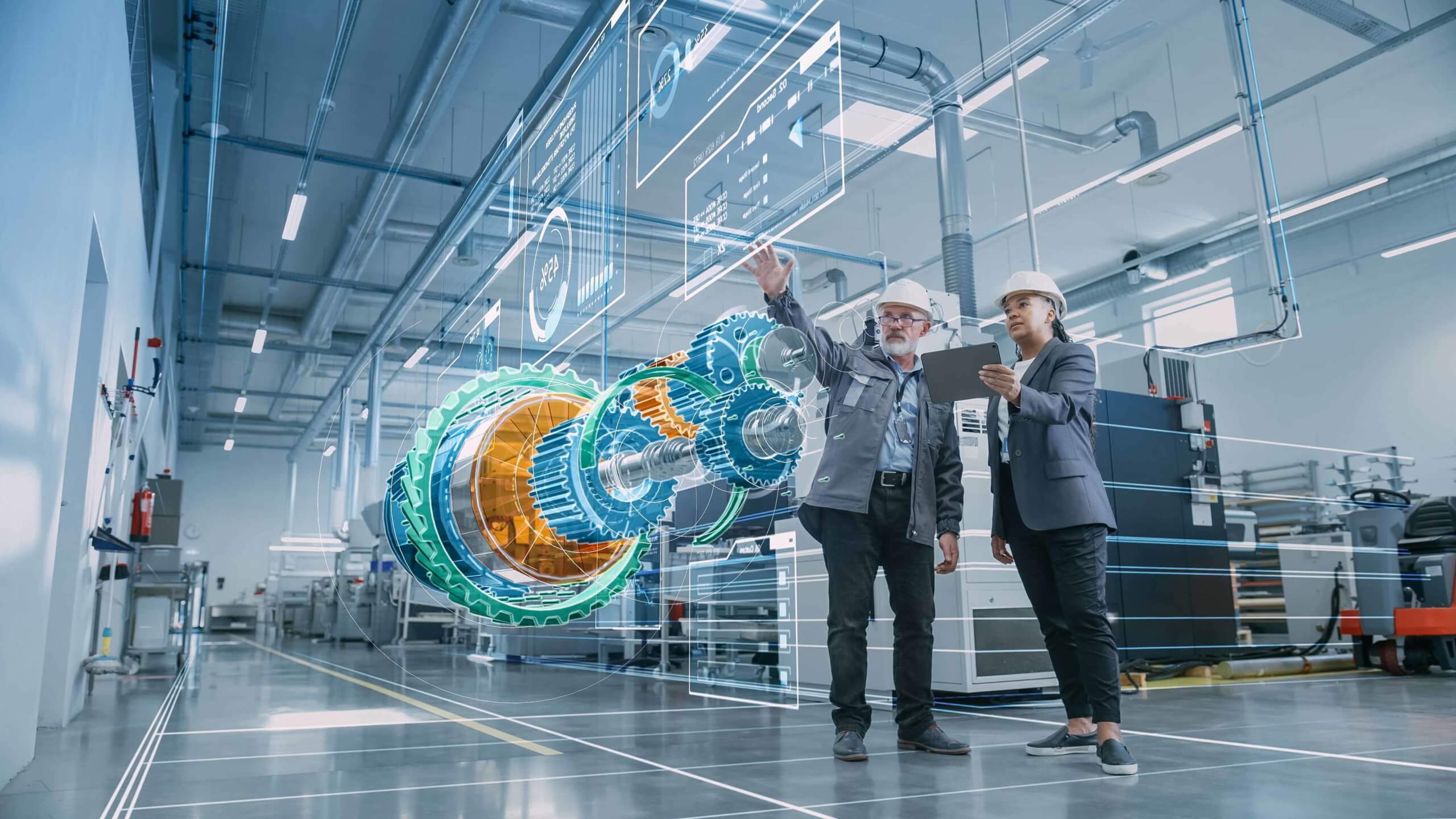Companies are recognising that adopting digital technologies and software will help them meet changing demands and minimise their environmental impact. Embracing sustainable automation, allows industries to achieve greater operational efficiency, reduce waste, and contribute to a greener future. Moreover, they can use data management for real-time decision-making to improve the sustainability of supply chains, assets and production.
Schneider Electric sees the potential to go further by revolutionising machine building. To rethink machining operations and respond to demands with new functions that avoid stoppages and use data to improve production cycles. Using advanced automation and robots for smarter operations to improve production and build stronger business outcomes.
Volatile markets underline the value of sustainable competitive advantage for the future of advanced manufacturing. The response is to reshape industries for greater productivity and flexibility. Furthermore, to get rid of waste from the value chain and push technology use for better control and resource management.
Taking the first steps
It may seem overwhelming, yet by taking small decisive steps while thinking big and scaling fast, a greener industrial future is achievable. Surely, optimising energy use while improving process and resource efficiency will transform operations and deliver low carbon outcomes. Green technologies and sustainable automation to support greenhouse gas reduction this decade will allow industries to survive and meet net-zero.
Sustainable Automation
Industrial sustainability is not about doing less. It is about greater operational efficiency, and conserving energy and resources to shrink industry’s environmental footprint. Moreover, by starting now, we can build a stronger, low carbon industrial future with smart green electricity and next-generation automation.
Three resilient strategies for agile eco-operations
Industrial sustainability is achievable through the interplay of software with automation and energy optimisation. Together they can deliver positive outcomes that are greater than the sum of each part.
- Automation
Automation optimises processes, energy, and resource utilisation, reducing operating costs, and ensuring workforce safety. Software-centric automation based on open standards facilitates interoperability, digital collaboration, and the conversion of IoT data into valuable insights. Automation saves time, money, and enables the development of new skills.
- Software and Digitisation
The use of software and digitisation provides data-driven insights to enable efficient processes, smart scheduling and visualisation. By employing digital tools, artificial intelligence, digital twins, and human insight, industries can unlock higher levels of performance. Certainly, deeper analytics optimise assets, real-time data management ensures resilient industrial ecosystems, and digitised traceability supports circularity.
- Energy Optimisation
Energy optimisation is crucial for industrial decarbonisation at scale. Increasing electrification, fuel-switching strategies, and the convergence of power and process energy can rapidly reduce industrial waste. Recycling initiatives also promise to lower energy demand. Finally, embracing renewable and smart storage to manage power use across industrial value chains.
Leveraging data management and real-time decision making will improve the sustainability performance of supply chains, assets and production cycles. Industries need to think digitally so that software and data can improve the visibility and management of power, fuel, water, raw materials, product quality, and equipment utilisation.

